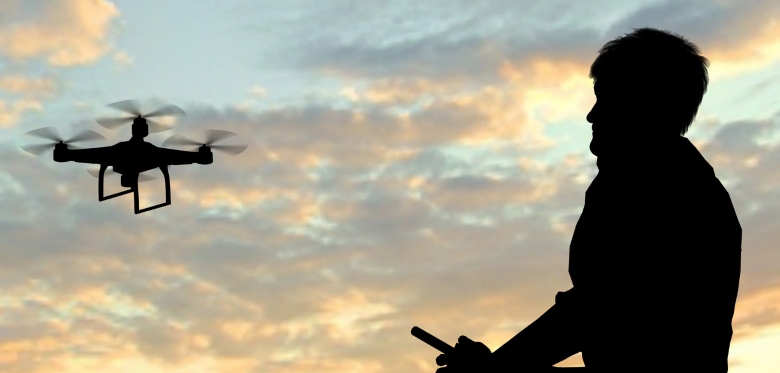They come in all shapes, sizes and complexities, from ‘nano’ versions that measure no-more than a couple of inches across to enormous, GPS enabled, camera wielding machines.
While a relatively new innovation, remote-controlled drones are now incredibly popular. According to the Civil Aviation Agency (CAA), drones were one of the ‘most-wanted’ Christmas gifts under the tree last year and more than two million of the gadgets are already in the air over the UK.
As the technology becomes more mainstream and the cost of owning your own drone continues to drop, concerns over the number of inexperienced, unregulated pilots – and the capability to cause nuisance or accident – increases. Recent research suggests that around 25 per cent of people who plan to buy a drone are unaware of the rules and legal requirements.
Now, the UK government is taking steps to introduce tough new tests before amateur pilots can get their drone off the ground.
The changes, which are set to come into effect between 30 July and 30 November this year, follow a rise in the number of drone near-misses with aircraft.
In 2017 alone, there were 99 reported drone incidents, up from 62 in 2016 and only 29 in 2015. In October last year, an Airbus A321 – which was coming in to land at Heathrow Airport – passed so close to a drone that the pilot was certain the device had struck the plane.
The consequences of any collision– not least for the hundreds of passengers on board, and those on the ground – simply do not bear thinking about.
‘Unlimited fines and prison time’
Elsewhere, some have been busying their drones by delivering drugs to prisoners, hovering over cash machines to capture people entering their PIN numbers and getting candid snaps of celebrities in their homes. In the United States, criminal gangs have recently used a swarm of small drones to obscure the police’s view of a hostage situation.
It is incidents such as these that are the driving force behind the new proposals.
In addition to new safety tests, owners of drones weighing 250g or more will be forced to register their details online. This will affect a very large number of consumer drones – widely available on the high street and at online retailers. Those who fail to register or complete the safety test could be fined up to £1,000.
However, users who ignore strict new flight restriction rules could face unlimited fines, up to five years in prison, or both.
Protecting aircraft and passengers
The new laws are part of an amendment to the existing Air Navigation Order 2016, but more detailed and wide-reaching laws are expected to be introduced later in the year as part of the government’s ‘Drones Bill’.
A new 1km drone ‘no-fly’ zone will be implemented around all airport boundaries. All drones will also be banned from flying above 400ft (121.9m) – a rule which was previously included in the CAA’s ‘Drone Code’ but will now be enshrined in law.
Offending pilots could also have their drone seized by the police and the court has powers to prevent anyone convicted of owning or using a drone for a period of time.
The CAA’s ‘DroneCode’ is available online alongside the ‘Drone Assist’ app through the App Store and Google Play.
This platform, provided by NATS, the UK’s main air traffic control provider, presents users with an interactive map of restricted airspace, hazards in the air and on the ground, security and privacy risks.


